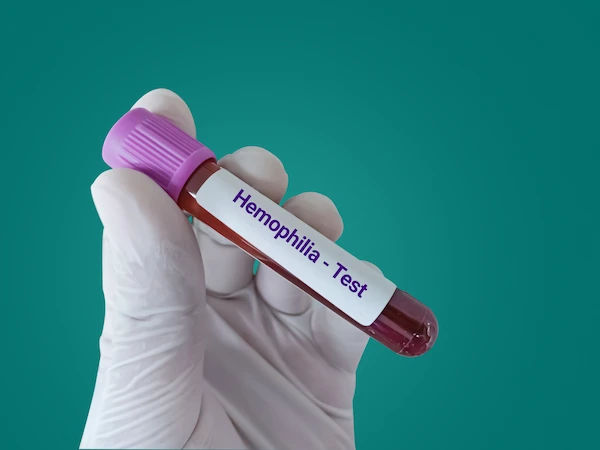Blood Donation Time Intervals Explained
Understand the recommended time intervals between blood donations for men and women. Learn how often you can safely donate whole blood, platelets, and plasma to support a healthy donation routine.

Written by Dr. Mohammed Kamran
Reviewed by Dr. Shaik Abdul Kalam MD (Physician)
Last updated on 30th Aug, 2025

Donating blood is a noble and life-saving act. However, to ensure the safety of both donors and recipients, there are specific time intervals between donations that must be followed. If you’ve ever wondered, "How often can I donate blood?" or "Why do I have to wait before donating again?", this article will answer all your questions in a simple and friendly way.
Why Are There Time Gaps Between Blood Donations?
Your body needs time to replenish the blood you donate. Blood contains essential components like red blood cells, plasma, and platelets, each of which takes different amounts of time to regenerate. If you donate too frequently, you may risk:
Fatigue or weakness
Iron deficiency (anemia)
Lowered immunity
To keep you healthy and maintain a steady supply of safe blood, medical experts have set specific waiting periods between donations.
Different Types of Blood Donations & Their Waiting Periods
Donating blood saves lives, but the type of donation you give determines how often you can donate.
1. Whole Blood Donation
What it is: The most common type, where a pint (~470 ml) of blood is taken.
Waiting period: 56 days (8 weeks) before donating again.
Why? Your body needs about 6-8 weeks to replace lost red blood cells.
2. Plasma Donation (Plasmapheresis)
What it is: Only plasma (the liquid part of blood) is collected; red cells are returned to your body.
Waiting period: Every 28 days (4 weeks), but some centers allow twice a week with at least 48 hours between donations.
Why? Plasma regenerates faster than red blood cells.
3. Platelet Donation (Plateletpheresis)
What it is: Only platelets (tiny cells that help clotting) are collected; other blood components are returned.
Waiting period: Every 7 days, up to 24 times a year.
Why? Platelets replenish in just a few days.
4. Double Red Cell Donation
What it is: Only red blood cells are collected using a special machine.
Waiting period: 112 days (16 weeks) before donating again.
Why? Red blood cells take the longest to regenerate.
Consult top Hematologist
Who Can Donate Blood & Who Should Wait?
Most healthy individuals can donate blood if they meet the following general criteria:
Eligibility Criteria (General Guidelines)
Age: 18-65 years (varies by country).
Weight: At least 50 kg (110 lbs).
Hemoglobin levels: Minimum 12.5 g/dL for women, 13 g/dL for men.
Health: Must be free from infections (HIV, hepatitis, etc.) and chronic illnesses.
When Should You Wait Longer?
After surgery or illness: Wait 6-12 months depending on the condition.
After tattoos/piercings: Wait 3-6 months (infection risk).
Pregnant or breastfeeding women: Wait 6-12 months after delivery.
Low iron levels: Wait until hemoglobin levels normalize.
Tips for a Healthy Blood Donation Experience
To make sure your donation goes smoothly and you recover quickly:
Before Donating
Eat iron-rich foods (spinach, lentils, red meat) a few days before.
Stay hydrated – drink plenty of water.
Get a good night’s sleep before donation day.
Avoid alcohol & fatty foods 24 hours before.
After Donating
Rest for 10-15 minutes before leaving.
Drink extra fluids for the next 24 hours.
Avoid heavy exercise for the rest of the day.
Eat a healthy meal to replenish nutrients.
Myths About Blood Donation Intervals
Below are few myths and facts about blood donation intervals,
Myth: "Donating blood frequently makes you weak."
Fact: Your body replaces blood naturally; waiting periods ensure you stay healthy.
Myth: "You can’t donate if you have high BP or diabetes."
Fact: Many people with controlled conditions can donate therefore check with a doctor.
Myth: "Donating blood hurts a lot."
Fact: A small pinch is felt, but the process is mostly painless.
Why Regular Donations Matter
Blood is always needed for:
Accident victims
Cancer patients
Surgeries & transplants
Chronic disease treatments
By donating regularly (within safe intervals), you help save lives without harming your health.
Ready to Donate? Book an Appointment with Apollo 24|7
If you're eligible and want to contribute, you can schedule a blood donation appointment easily through Apollo 24|7. Their expert team ensures a safe and comfortable experience. Call now or book online to find a donation center near you!
Conclusion
Blood donation is a simple yet powerful way to help others. By understanding the right time gaps between donations, you can donate safely and make a lasting impact. Remember, every drop counts!
Consult top Hematologist
Consult top Hematologist
Dr Sumanth R
General Physician
2 Years • MBBS
Bengaluru
PRESTIGE SHANTHINIKETAN - SOCIETY CLINIC, Bengaluru

Dr. Thorana Prakash M
General Physician
2 Years • MBBS
Bengaluru
PRESTIGE SHANTHINIKETAN - SOCIETY CLINIC, Bengaluru

Dr. Purvi Kadakia Kutty
Paediatric Haematologist
10 Years • MD Paediatrics FNB Pediatric Haem. & Onco.
Mumbai
Apollo Hospitals CBD Belapur, Mumbai

Dr Abilash Jain
General Physician/ Internal Medicine Specialist
12 Years • MBBS,DNB(FM),MNAMS,FIAMS,CCGMG(GERIATRICS),DGM (GERIATRICS),PGCD(DIABETES,BOSTON UNIVERSITY),FID(DIABETICS UK)CCEPC(PALLIATIVE CARE),CCCC(CRITICAL CARE)
Visakhapatnam
Apollo Clinic Vizag, Visakhapatnam

Dr. Ramalinga Reddy
General Physician
5 Years • MBBS MD General medicine
Bengaluru
PRESTIGE SHANTHINIKETAN - SOCIETY CLINIC, Bengaluru




